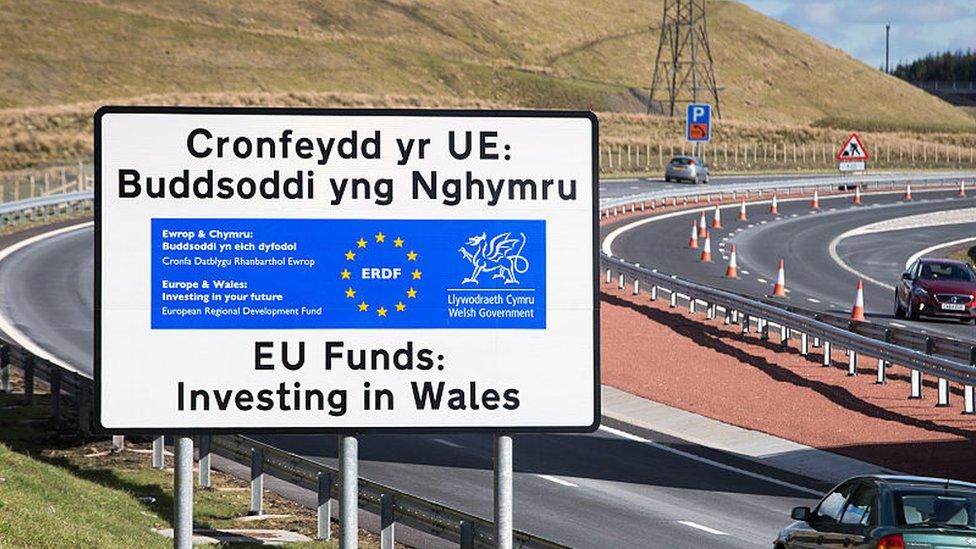'Levelling up': What does it mean for Wales?
- Published
- comments
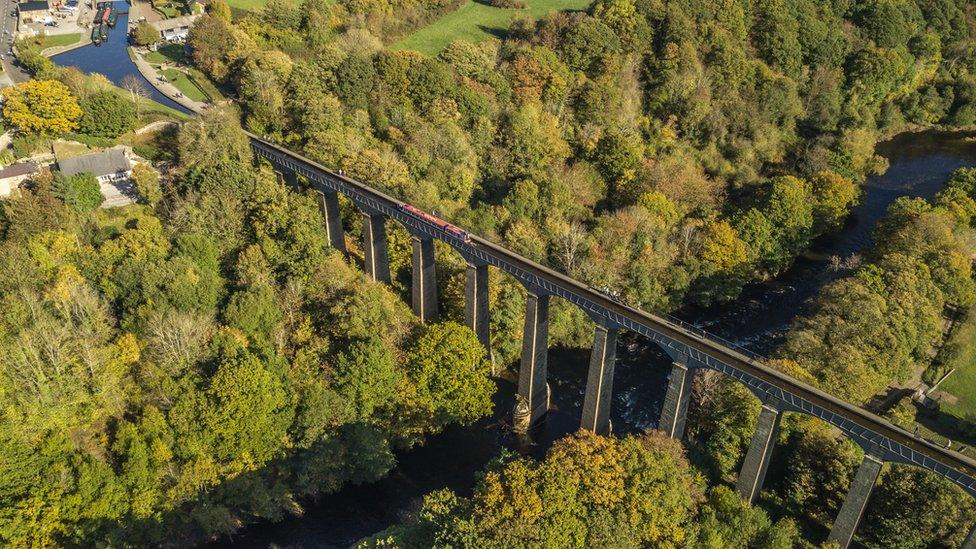
Plans for a walking route around the Pontcysyllte aqueduct near Wrexham are expected to benefit from levelling up funds
It's a phrase that we have heard many, many times since the general election in 2019 - but what does it mean?
"Levelling up" is the UK government's plan to reduce the differences between richer and poorer parts of the UK.
But until Wednesday there was not much detail about what it all really involved.
London ministers have set themselves a set of goals for how they want to see people's lives improve by 2030 - across the four nations of the country.
They want the UK to be healthier, to earn better money and improve the education of children.
They promise better internet connections for everyone, and cash for boosting new technologies.
It comes alongside projects launched under the "levelling up" banner last year, with cash promised for transport hub in Porth, tourist improvements around the Pontcysyllte aqueduct, and money for the Muni in Pontypridd.
The man in charge, Michael Gove, says he wants Wales' First Minister Mark Drakeford to help him out.
But Cardiff Welsh Labour ministers say their political rivals in Westminster are, rather than leaving Wales better off, actually leaving it short-changed, with less cash than when we were in the European Union.
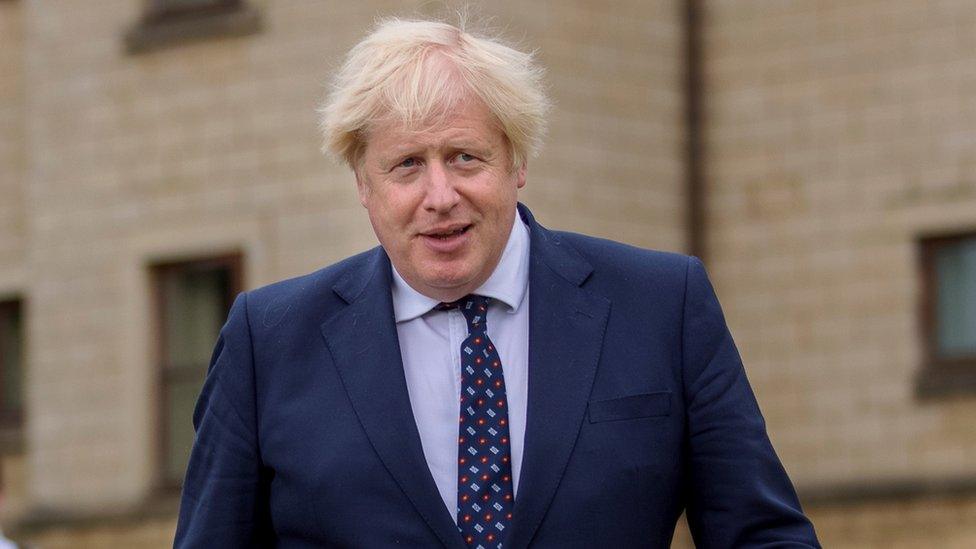
Boris Johnson is under pressure from his own Tory MPs to deliver on his levelling up pledge
What is it all about?
Levelling up is Boris Johnson's big promise to voters in the former Labour seats - like those in north Wales - that went Tory in the 2019 general election.
He said he would make sure government investment was spread more widely around the UK so their towns and cities could become more prosperous and offer better job prospects for the people who live there.
It includes the Levelling Up Fund - a £4.8bn plan for upgrading town centres, local transport and improving cultural and heritage assets.
After the pandemic, reports of lockdown parties in Downing Street and with energy prices and food bills rising, the UK government is under pressure to deliver from its own MPs.
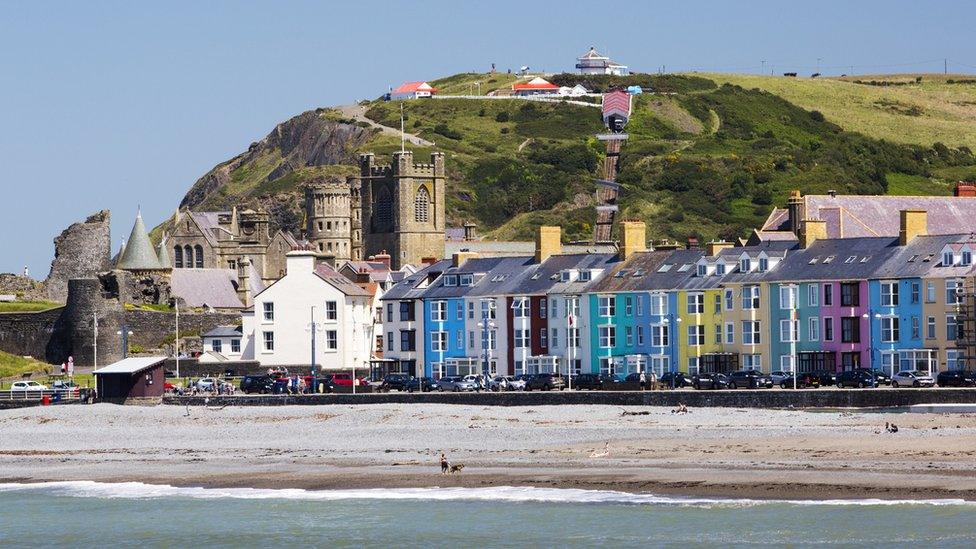
Aberystwyth is among the towns receiving cash from the Levelling Up fund
What are the Levelling Up Fund projects in Wales?
Ten projects in Wales are getting cash from the project announced last year, following bids from Welsh local authorities.
They are:
£16.7m for a cycling and walking route in the Tywi Valley
£10.8m towards the regeneration of Aberystwyth's Old College, promenade and harbour, in Ceredigion
£17.7m to support the regeneration of Haverfordwest, Pembrokeshire, including improvement work at the town's disused 13th Century castle
£15.4m to restore a stretch of the Montgomery Canal, Powys
£6.9m for infrastructure projects in Llandrindod Wells and Brecon, Powys
£11.4m to dual the A4119 at Coed-Ely, Rhondda Cynon Taf
£5.4m for the Muni Arts Centre, Pontypridd, Rhondda Cynon Taf
£3.6m for a bus and rail interchange in Porth, Rhondda Cynon Taf
£13.3m to boost tourism, including a new walking route in the area around the Pontcysyllte Aqueduct World Heritage site, near Wrexham.
Both Carmarthenshire and Pembrokeshire secured £19.9m to develop town centre hubs in Carmarthen and Pembroke.
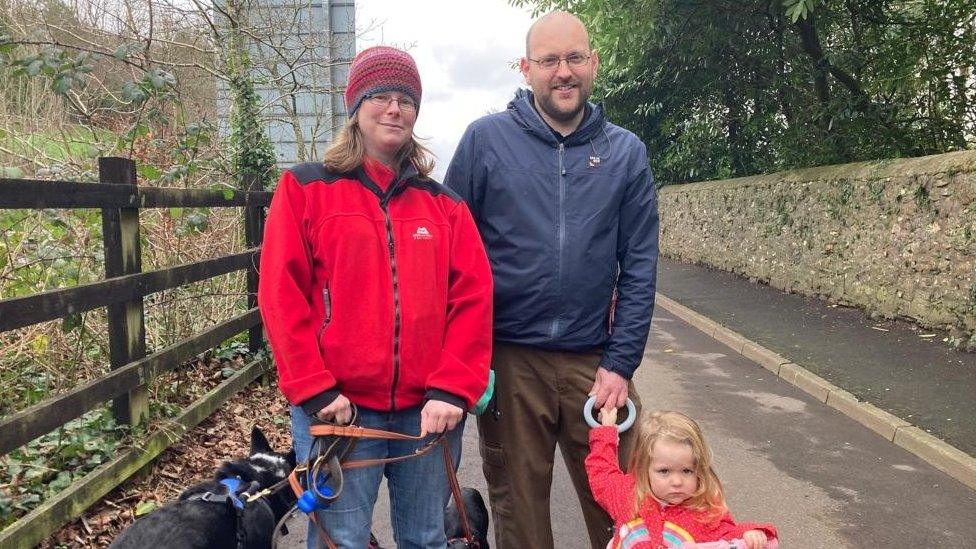
John and Dee Sparke-King with their 2-year-old daughter
The Tywi Valley cash be used for a walking and cycling route project in Carmarthenshire.
The project will create a 20km route linking Carmarthen to Llandeilo.
John Sparke-King said: "To have this path all the way through would be really lovely, and it would be nice for the children."
"It would link the other communities as well, a lot of the communities that it would go past. That would level it up as well, cause everyone could just share the access."
Carmarthenshire Cabinet Member for Environment Hazel Evans said the path would be a "huge tourist attraction".
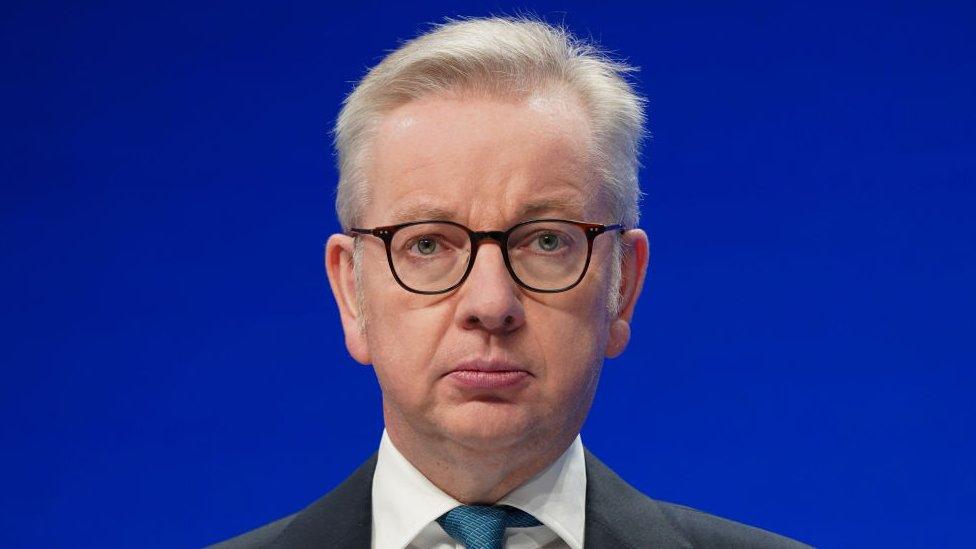
Michael Gove says he wants to work with the Welsh government on the plans
What about the new plans?
No new money for Wales was announced on Wednesday, but there were big commitments to improve the lives of people across the UK by 2030, promising to improve well-being in "every area" in all four nations.
The UK government wants to close the gap between the highest and lowest performing cities, and narrow gaps in life expectancy.
It is promising nationwide gigabit-capable broadband and 4G mobile coverage, with the newer 5G mobile system for the majority of the population.
And ministers have pledged a 40% increase in public investment outside south-east England in technological research.
New plans were also set out for how EU funds may be replaced, saying the new Shared Prosperity Fund will "empower local leaders". What this means for how the funds will be administered in Wales remains unclear.
Although it implies councils will have a stronger role than under the EU aid schemes, which were administered by the Welsh government, it suggests the Welsh government will still have a role "to determine the most appropriate mix of investment priorities".
How does all of this work in Wales?
That's an important question, because it is politicians based in Cardiff Bay that hold the controls on education and health in Wales - not the ones in London.
That is called devolution, and Michael Gove, the minister for levelling up, says he wants to work with the Welsh government to achieve their aims.
He has written to Mark Drakeford, and the leaders of the governments in Scotland and Northern Ireland, suggesting the creation of a new body to "share evidence and analyse success in devolved policy areas across the UK".
What's the criticism?
Welsh Labour ministers have accused Mr Johnson's government of side-lining them by making spending decisions in areas under the Welsh government's control, like transport and the environment.
They also say the UK government has not kept its promise that Wales would not lose out when it could no longer receive EU aid money of around £375m a year.
And it says the new research cash would amount to £9m, saying it has lost out on £60m a year from EU funds for research and development.
Economy Minister Vaughan Gething said: "Any plan worthy of credibility would have been published last year with clear priorities for stronger local economies in a rebalanced UK economy.
"In its place we have half-baked, incoherent funding pots hatched in isolation in Whitehall."
Mr Gove said ministers in Cardiff were getting "record sums" of investment.He told Radio Wales Breakfast: "We need to work with the Welsh government to support their ambitions as well""We work well with the Welsh government - there are always tensions between the political priorities of people in Cardiff and in London - that happened even with Rhodri Morgan and Tony Blair".
Plaid Cymru's Treasury spokesman, Ben Lake, said: "With no new funding announced today, people are right to be sceptical of these plans."
Mr Lake criticised the lack of an announcement of an innovation and research centre for Wales, as announced for Glasgow.
"We have to ask ourselves why Scotland's government, even when it doesn't want it, can get more support and investment from Westminster than Wales."
Welsh Liberal Democrat leader Jane Dodds said levelling up was an "empty slogan" when infrastructure projects in Wales, like electrification to Swansea and the Tidal Lagoon, had been cancelled.
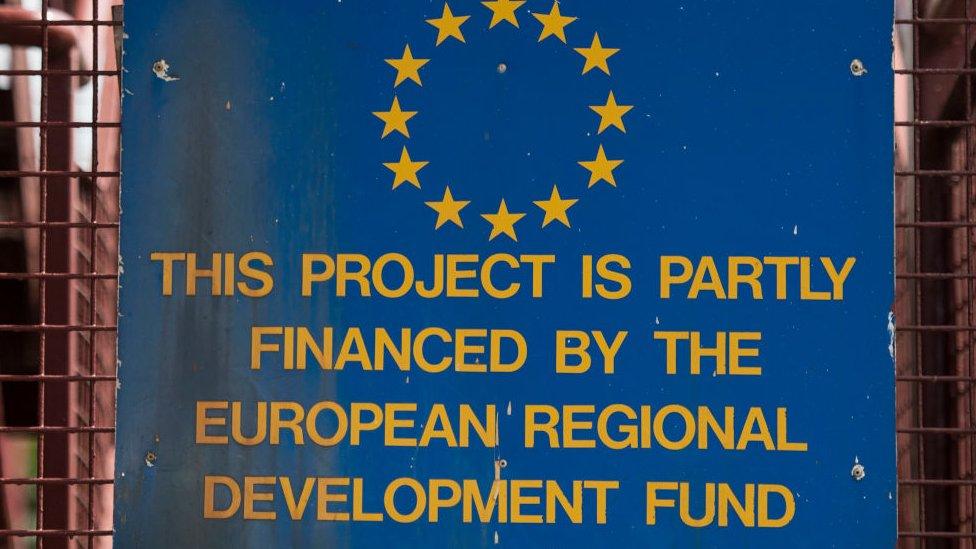
The Shared Prosperity Funds will replace EU economic cash
What is replacing EU funds?
During the UK's membership of the EU, Wales received European money to help the economy in its poorest areas.
The cash, managed by the Welsh government, is being slowly phased out with funding ending by next year.
After Brexit, the UK government announced it would replace this with a £2.6bn Shared Prosperity Fund.
The levelling up plans say the fund will "enable improvements to the places where people live and work".
But the Welsh government has claimed Wales will be £1bn worse off by 2024 - figures disputed by Michael Gove on Wednesday.
A pilot scheme - the £200m Community Renewal Fund (CRF)- saw Welsh projects given nearly a quarter of the funds.
Every council except Flintshire received money, with 160 projects totalling £46m receiving between £6,600 and £1.9m.
The CRF and the Levelling Up Fund are separate things, but neither are like the old EU funding scheme, which concentrated cash an area of Wales that had been earmarked as the poorest - West Wales and the Valleys, which included most of north Wales.


- Published15 March 2024
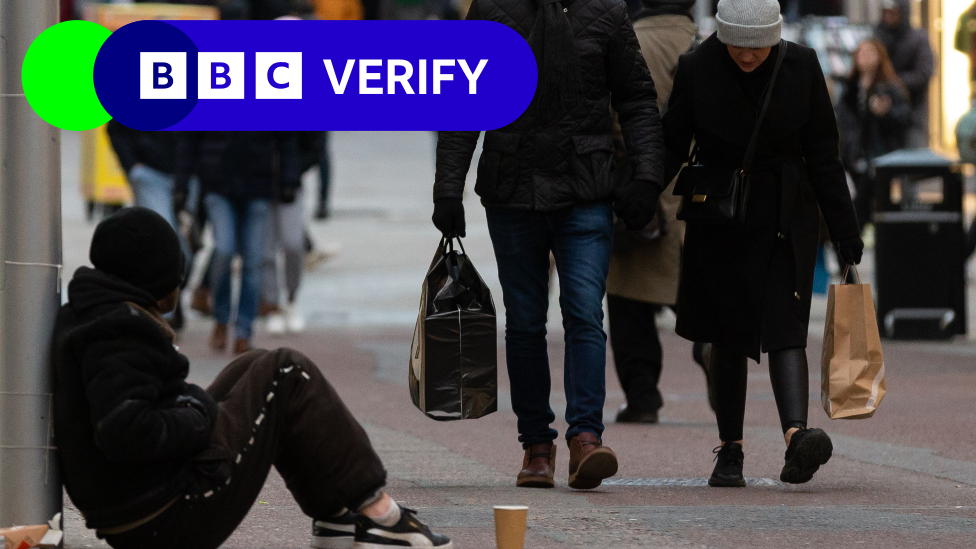
- Published3 November 2021

- Published10 January 2022
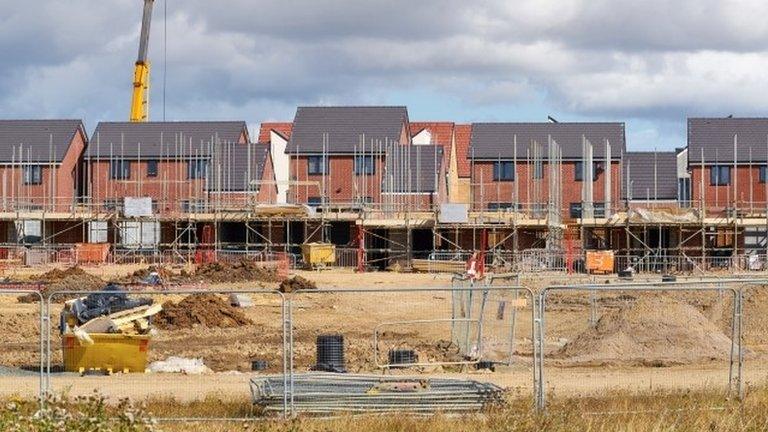
- Published24 February 2021
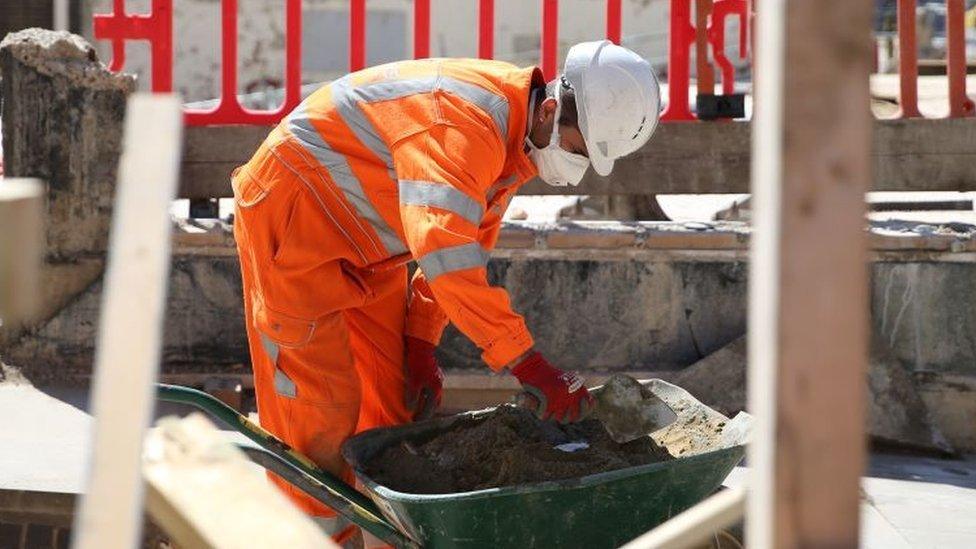
- Published3 March 2021
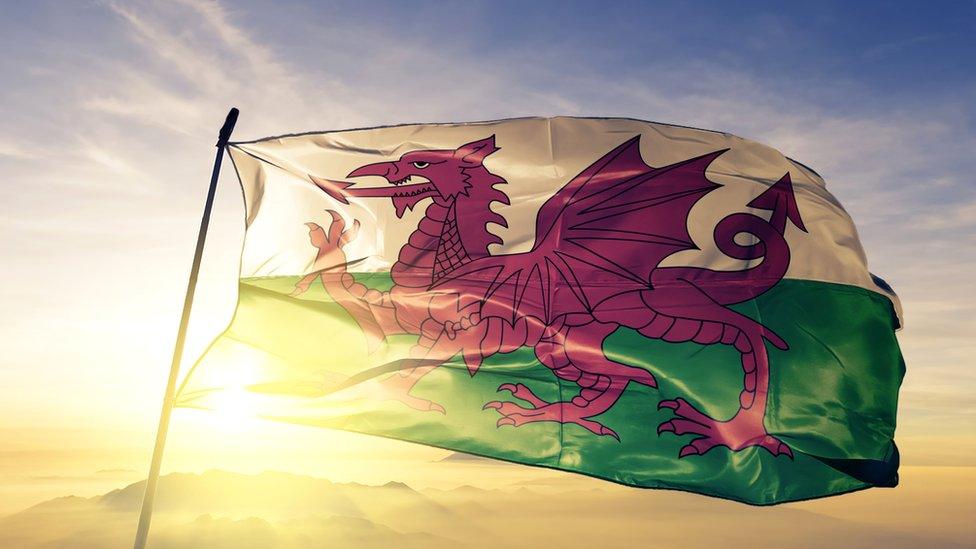
- Published4 March 2021
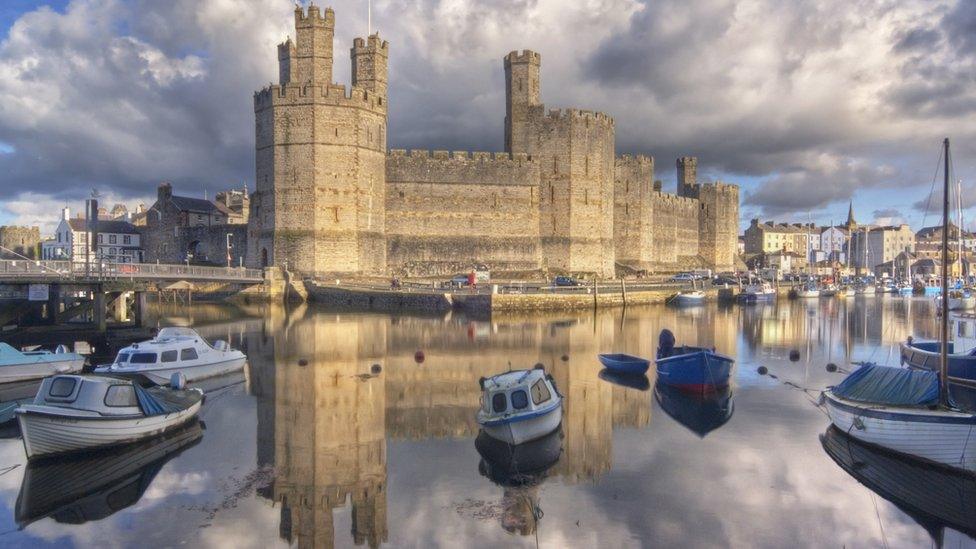
- Published4 November 2021
